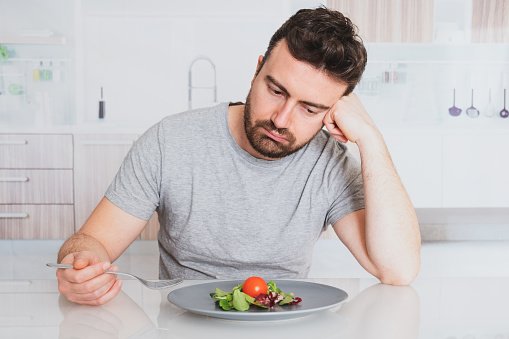Your way of thinking, how you perceive things, imagination, and emotions all affect how you perceive your body. Your physical appearance might not even be a significant factor. Body image problems can impact people of all ages and genders, even though they are typically regarded as a women’s health issue.
One-third of people with eating disorders are believed to be male. Male body image issues don’t happen by themselves. These harmful habits and co-occurring disorders are frequently rooted in men’s mental health issues and low self-esteem. Comparing your body to what the media portrays as the ideal male body form and size, which is lean and strong, frequently leads to poor body image or body dissatisfaction. Men who are self-conscious about their bodies often focus on muscle growth and weight loss, which can result in excessive exercise and the usage of medicines that enhance one’s appearance.
In addition to other mental health conditions including distress, self-esteem issues, low mood, and anxiety, poor body image is frequently associated with excessive exercise, dieting, or disorders like body dysmorphic disorder, anorexia nervosa, bulimia nervosa, and binge eating disorder. Moreover, as young adults, boys who are bullied for their appearance as teenagers may still struggle with issues connected to body dissatisfaction and other problems. Issues with male body image may arise as a result of childhood trauma, including sexual trauma, bullying-related trauma, and other trauma.
Exposure to unrealistic ideal bodies in media including movies, television, magazines, advertisements, and social media is a widely researched factor that affects body image. The perception of these unrealistic and idealized body types is supposed to be made easier by exposure to these photographs. Social media enables unfair comparisons to be made between people based on appearance. This is a factor that’s been repeatedly connected to body dissatisfaction.
Furthermore, men’s disordered eating and problems with negative body image have increased throughout the epidemic due to isolation and a lack of social and physical activity. Viren Swami, a professor of social psychology, led a 2020 study that looked more closely at the connection between boys with negative body image issues and difficulties with their mental health during COVID. The study’s investigators discovered that tension and anxiety brought on by the pandemic were linked to a stronger need for muscle and that worry was also linked to dissatisfaction with one’s appearance. These findings were linked to persistent societal stereotypes about how males ought to behave under pressure. In particular, the ability to portray strength and competence in a crisis is still perceived by the general public as being correlated with physical strength and muscle.
Importance of Professional Counseling: A friend or family member may listen to you, but they aren’t professionally, technically qualified or experienced to offer you professional advice. If you wish you can contact us at MindTribe to receive help from our team of expert psychologists.
About MindTribe.in.
MindTribe Founder Dr. Prerna Kohli, India’s eminent psychologist, established the company to leverage the strength of the online to make counseling affordable and accessible to everyone. MindTribe provides counseling, workshops, support groups, forums, and eLearning.
About the Author.
Sujata Chandra is a psychologist at MindTribe.in. You can learn more about her by clicking here
Disclaimer: The views and opinions expressed in this article are those of the author and do not necessarily reflect the official policy or position of MindTribe.in, the Founders, or management team.
Acknowledgement: All images used are open source and from Unsplash.

